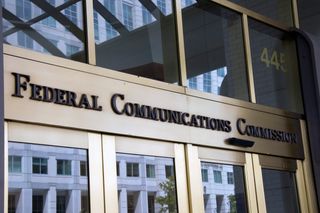Free State to FCC: Leased Access Rules Are Unconstitutional

The FCC has sought comment on whether its leased access rules, which require cable operators to lease capacity to third parties, and at regulated rates, pass First Amendment muster. The Free State Foundation said definitely not.
That came in comments to the commission Monday (July 22) , which in June agreed unanimously to tweak its leaked access rules but in an item that also asked for further input--the two commission Democrats cast partial dissents from this part--on whether the rules should stay on the books at all given the First Amendment impact on cable speakers and the "dramatic changes in technology and the marketplace for the distribution of programming [that] cast substantial doubt on the constitutional foundation for our leased access rules."
Related: FCC Casts Doubt on Constitutionality of Leased Access
Free State has no doubt the rules are built on a foundation--of video scarcity--that has turned to sand.
"Cable operators' channel lineup selections, tier placements, and other video programming decisions are editorial activities and forms of constitutionally protected speech. But under the Commission's rules, cable operators lose editorial control over any video programming on the channel capacity they are required to lease for video programming not of their choosing," said Free State, echoing an argument cable operators have made and the FCC's Republican majority are receptive to. "Moreover, rate controls on leased channel capacity also undermine cable operators’ editorial rights by restricting what they can charge for content they may not want to carry."
And while cable regs like leased access have been justified by cries of video "bottleneck," FSF suggests video distribution is now a firehose of choice. As a result, it said, the rules can't be justified and the FCC should stop enforcing them.
The FCC order made it clear, in the part from which the FCC's Democrats dissented, that the FCC is skeptical that the rules can pass constitutional muster, laying it out in a summation that was music to the ears of cable operators long arguing that leased access and other must-carry mandates impinge on cable's editorial discretion.
Multichannel Newsletter
The smarter way to stay on top of the multichannel video marketplace. Sign up below.
"The changes in the video marketplace...call into question whether our leased access rules are consistent with the First Amendment," the order said. "Specifically, while the leased access rules were originally justified as safeguarding competition and diversity in the face of cable operators’ monopoly power, the growth in available platforms to distribute programming seems to have eroded this justification.
"We agree that dramatic changes in technology and the marketplace for the distribution of programming cast substantial doubt on the constitutional foundation for our leased access rules. We recognize that we rejected similar constitutional arguments in the 2008 Leased Access Order, which we vacate today [the order is looking ahead to a June 6 vote].
"Our analysis has changed because the facts have changed: The growth in alternative outlets for programmers—particularly on the internet—has exploded in the decade since the adoption of the 2008 Leased Access Order. Given this proliferation of new distribution platforms, we now find that the First Amendment concerns raised by commenters provide additional reason to interpret the statutory obligations of Section 612 in a manner that reduces burdens on the speech of cable operators."
Contributing editor John Eggerton has been an editor and/or writer on media regulation, legislation and policy for over four decades, including covering the FCC, FTC, Congress, the major media trade associations, and the federal courts. In addition to Multichannel News and Broadcasting + Cable, his work has appeared in Radio World, TV Technology, TV Fax, This Week in Consumer Electronics, Variety and the Encyclopedia Britannica.

